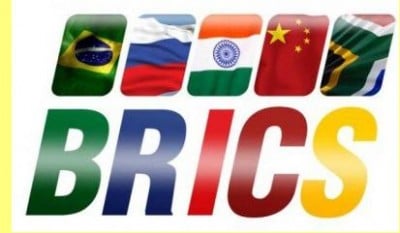BRICS Bank Opens for Business

Its Shanghai-based New Development Bank (NDB) represents the beginning of a significant challenge to predatory Western financial institutions – the IMF, World Bank and other loan shark lenders of last resort.
The IMF was established to stabilize exchange rates linked to the dollar and bridge temporary payment imbalances. The World Bank’s mandate was to provide credit to war-torn developing countries.
Both bodies proved hugely exploitive – using debt entrapment to transfer public wealth to Western bankers and other major creditors.
Debtor nations are forced take new loans to service old ones – assuring rising peonage and structural adjustment force-fed austerity harshness, including:
- privatization of state enterprises sold at fire sale prices;
- mass layoffs;
- deregulation;
- deep social spending cuts;
- wage freezes or cuts;
- unrestricted free market access for Western corporations;
- corporate-friendly tax cuts;
- tax increases for working households;
- crushing trade unionism; and
- harsh repression against resisting a system incompatible with social democracy, civil and human rights.
Bankers and other corporate predators strip mine countries of their material wealth and resources, shift them from public to private hands, crush democratic values, hollow out nations into backwaters, destroy middle class societies, and turn workers into serfs if they manage to have any means of employment.
Privileged monied interests never had things better – for most others it’s the worst of times. Financial tyranny creates permanent underclass societies – ones unfit to live in.
The BRICS NDB offers an alternative. It comes less than a month after the China-led Asia Infrastructure Development Bank (AIDB) launch with similar aims.
Both banks have $100 billion in reserves. Each BRICS member has equal voting shares. NDB president KV Kamath said:
“We believe the funding needs of Asia in the infrastructure space are so vast that there is easily space for the two of us and, indeed, many more lenders to participate.”
The four original BRICS nations (South Africa joined later) have 40% of the world’s population, one-fourth or its land mass and 25% of its GDP.
China’s Finance Minister Lou Jiwei said NDB “will place greater emphasis on the needs of developing countries, have greater respect for developing countries’ national situation, and more fully embody the values of developing countries. Development is a dynamic process.”
It will seek “innovative ways to reduce costs, improve efficiency, meet requirements of the customers with different levels of development and adapt to the global economic situation.”
It’ll promote sustainable development in BRICS countries and other developing ones.
Initial capitalization of $50 billion is expected to increase to $100 billion besides contingent reserves (called Contingent Reserve Arrangement – CRA) of $100 billion or more – to aid member countries in times of liquidity crises.
China’s CRA contribution is $41 billion, Brazil, India and Russia $18 billion each, South Africa another $5 billion.
Transactions will increasingly be in member country currencies – bypassing the dollar until perhaps eliminating it altogether. BRICS countries represent over $6 trillion in total trade, 17% of the world’s total, increasing annually as growth among these countries exceeds their Western counterparts.
NDB, AIDB and perhaps other alternative lending sources to follow challenge dollar dominance as the world’s reserve currency like never before – over time weakening what finances US imperial wars, America’s global bases and outsized military spending, reckless market speculation creating global economic crises, and overall harm to billions of people worldwide.
Initial loans are expected by next spring. NBB’s headquarters in Shanghai may one day let it challenge New York, London and Frankfurt as world financial centers.
Stephen Lendman lives in Chicago. He can be reached at [email protected].
His new book as editor and contributor is titled “Flashpoint in Ukraine: US Drive for Hegemony Risks WW III.”
http://www.claritypress.com/LendmanIII.html
Visit his blog site at sjlendman.blogspot.com.
Listen to cutting-edge discussions with distinguished guests on the Progressive Radio News Hour on the Progressive Radio Network.
It airs three times weekly: live on Sundays at 1PM Central time plus two prerecorded archived programs.

